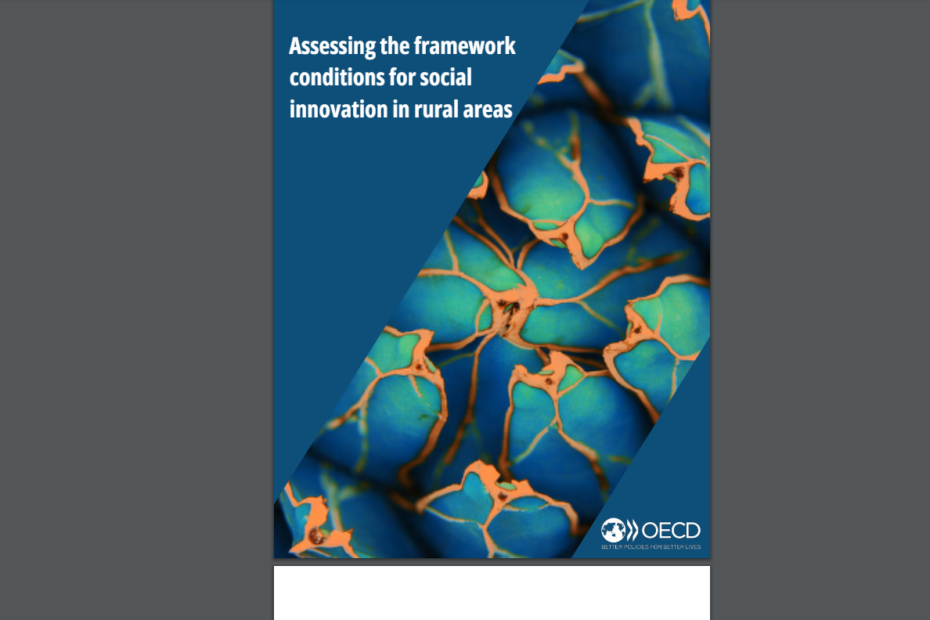The recently published paper by the OECD on social innovation in rural areas sheds light on an often overlooked aspect of rural innovation: the unique challenges and opportunities that rural contexts present. Social innovation seeks new answers to social and environmental problems, using novel solutions to improve the quality of life for individuals and communities. Unlike traditional innovation, it is often triggered by crises or events rather than commercial needs, making it especially relevant in rural settings.
The Role of Social Innovation in Rural Development
Social innovation is intrinsically linked to local development. While it plays a vital role in both urban and rural areas, the nature of the challenges it addresses can vary significantly depending on the local context. Rural regions often face unique difficulties such as geographic remoteness, a reliance on a dominant sector or firm, underdeveloped infrastructure, and limited public services. Additional issues like population decline, ageing populations, outmigration, and skills mismatches in labor markets further compound these challenges.
Despite these obstacles, rural areas also offer distinct advantages for social innovation. The reliance on local actors, including seniors, is more pronounced in rural areas. Civil society and social enterprises are crucial in initiating social innovations, leveraging local knowledge and resources. Land use, a relatively more abundant resource in rural areas, can be utilized for experimentation and innovative projects.
Rural innovation: Barriers and Drivers of Rural Social Innovation
While there are numerous examples of social innovation, most come from urban settings, leading to a knowledge gap about rural social innovation. Rural social innovation faces territory-specific barriers, such as limited access to funding, a smaller pool of mentors, and underdeveloped social entrepreneurial support ecosystems. These challenges necessitate tailored approaches to support and nurture innovation in rural contexts.
Social innovation empowers rural communities to take action, innovate, and address market failures and public service gaps. By bringing partners together, social innovators can experiment with new models and propose services or products that cater to local needs. This collaborative approach enhances the relevance and impact of social innovation in rural areas and its future.
Measuring and Supporting Social Innovation
Understanding and measuring social innovation is crucial for optimizing efforts to address social challenges. Greater awareness of social innovation models and ecosystems can enhance their effectiveness, sustainability, and accountability. However, developing a single approach or measure for social innovation is challenging due to the diverse factors that drive it, including local context.
The OECD paper proposes a framework to help policymakers understand local social innovation ecosystems. This framework includes a dashboard with five dimensions and 17 subdimensions, transforming qualitative inputs into quantitative indices for comparison across time and place. Despite the challenge of limited data at the rural level, improving sub-national data collection is essential for informing policies that promote social innovation in rural areas.
Conclusion
The OECD’s insights into rural social innovation highlight the need for targeted support and tailored approaches to address the unique challenges of rural areas. By focusing on economic diversification, infrastructure development, social inclusion, and environmental sustainability, rural communities can harness the power of social innovation to drive positive change. Policymakers, stakeholders, and social innovators must work together to create supportive ecosystems that enable rural areas to thrive in the face of ongoing transitions and structural changes.
By leveraging the strengths of local actors and addressing territory-specific barriers, rural social innovation can play a pivotal role in enhancing the quality of life for rural populations and fostering sustainable development. The journey towards effective rural innovation is complex, but with the right tools and collaborative efforts, rural communities can unlock their full potential and contribute significantly to broader societal goals.
